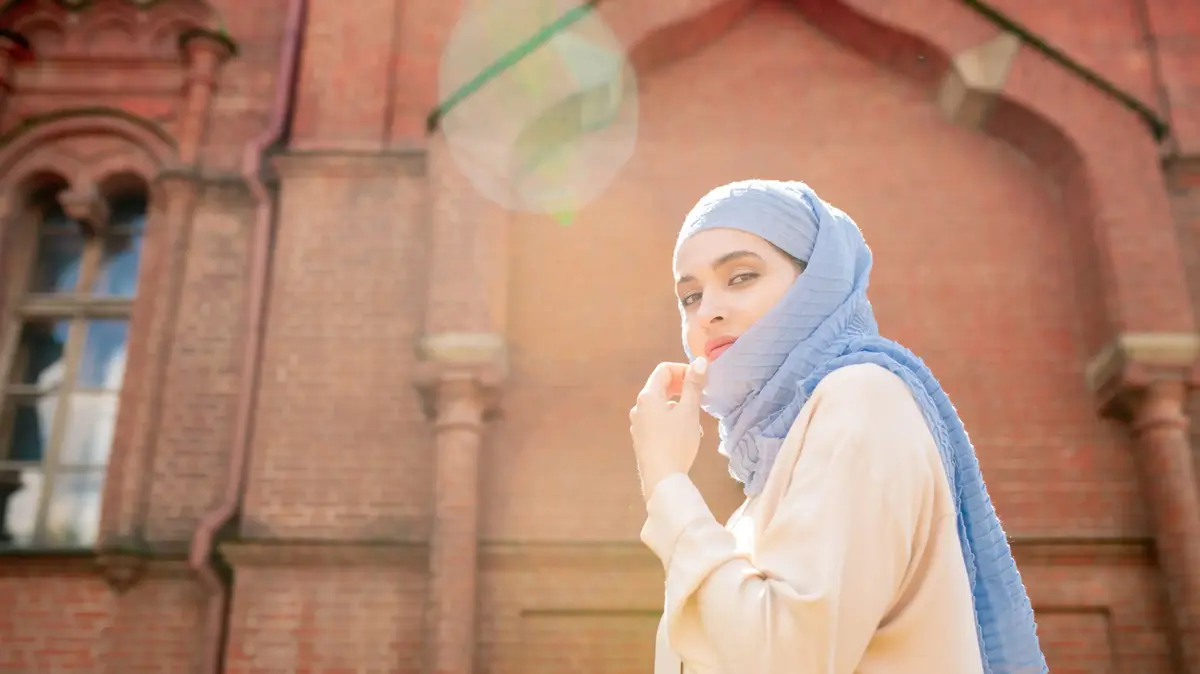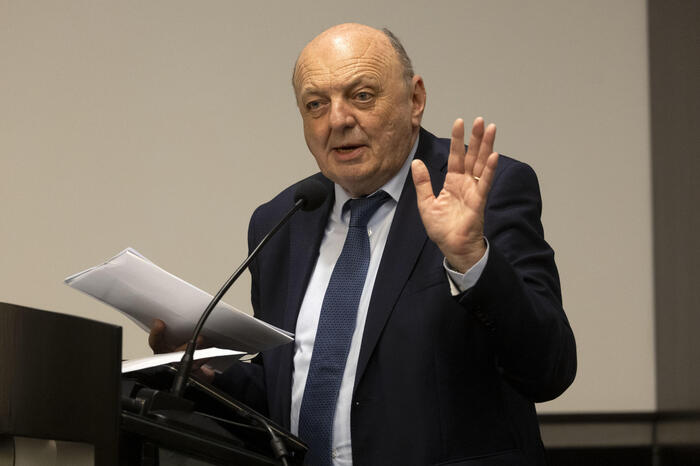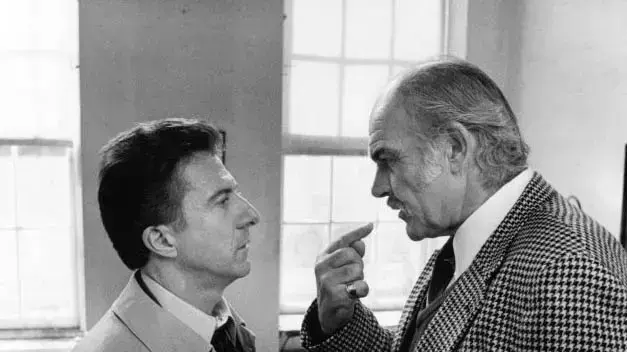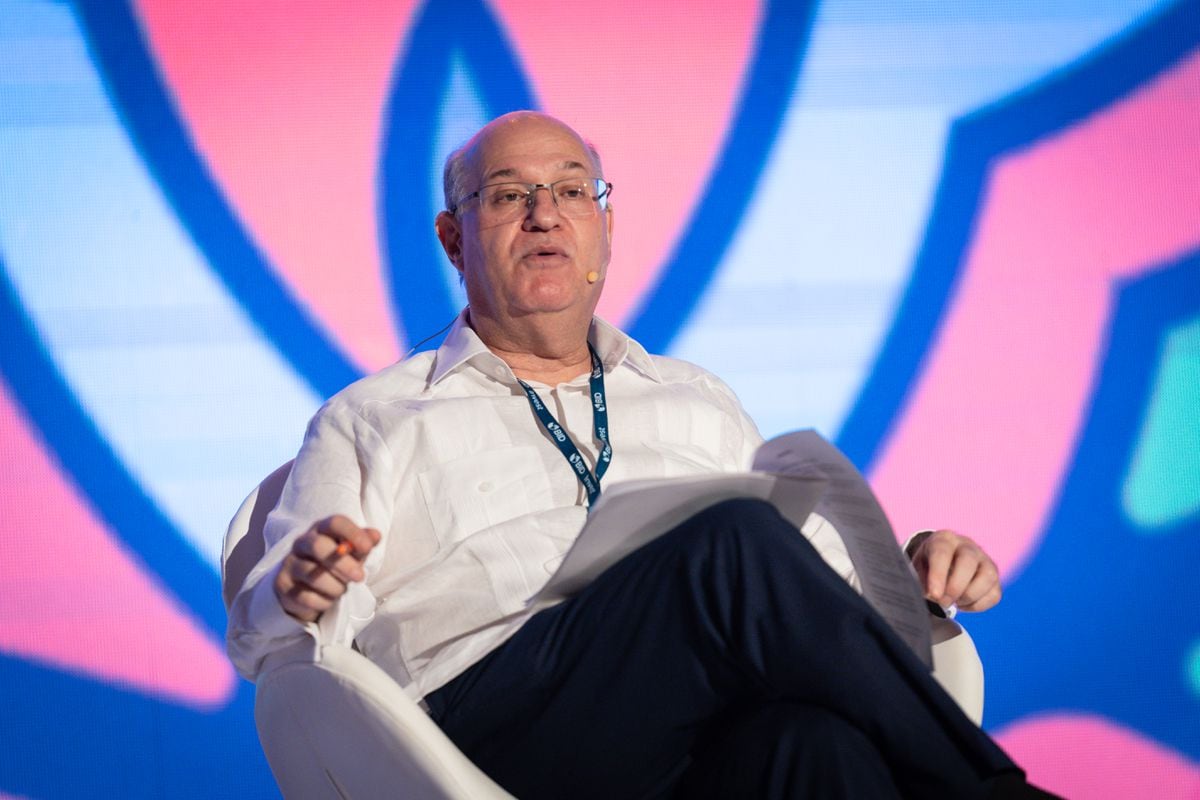Arab countries, primarily Saudi Arabia, the United Arab Emirates, but also Iran and Turkey, have in recent years experienced a significant boom in everything related to the aesthetic and beauty treatment sector.
The women of the Arab world in the Gulf principalities, in Dubai, in Saudi Arabia and even in Lebanon, invest huge sums in cosmetic procedures and advanced beauty treatments.
Prof. Hassan Galdari, an expert doctor in the field of dermatology and a lecturer at the United Emirates University of Medical Sciences (UAEU), recently visited Israel as part of the annual conference of the Israeli Association for Dermatological Surgery.
A well-groomed and articulate man, a second generation dermatologist.
His father, Prof. Ibrahim Galdari, is a partner with him in the family clinic, which is considered a center for pilgrimage in Dubai.
In addition, he is a sought-after lecturer worldwide, a best-selling author in his field of expertise and hosts a TV show in Dubai on skin health and beauty treatments.
We met with him for a fascinating conversation about cultural norms, changes in perception, aesthetic treatments in Arab society compared to what is happening in Israel and the world, and what are his red lines for patient requirements.
"Plastic surgeries and cosmetic procedures are very common in Arab countries," he says.
"This sounds seemingly surprising, since in some countries, women cover their faces in public with a veil, but Arab women like to meet in groups of women, wear designer clothes and invest a lot of money in their external appearance. This also includes the set of surgeries and treatments that are sold to you here in Israel, lip augmentation, Rhinoplasty and, of course, injections and fillers, my areas of expertise."
According to data published by the Israeli Association for Plastic and Aesthetic Surgery of the Medical Association, in Israel during the past year approximately 630,000 injections and medical aesthetic procedures were performed and over 80,000 Israelis underwent plastic surgery in the public and private health care system.
The three most popular surgeries were breast augmentation (9,000 surgeries), liposuction (7,000 procedures) and rhinoplasty (6,000 surgeries).
Plastics in the Arab world (Photo: ShutterStock)
PR Coach We Expected More: Kanye West's "Secret Wedding" Trick That a Buzaglu
fan will sleep with whomever he wants, but why be a pedant
"I had another apartment she didn't know about": the amazing secrets that couples hide the
vulva, the swindler, and Naama Zarbiv: The parade of hysterical stories of the week
"My body is too dangerous for social networks - because I'm naturally perfect"
"Nose surgeries are also in great demand in the Arab world," smiles Prof. Galdari.
"These surgeries are not only in demand in relatively modern places like Dubai, but also in countries like Turkey, Saudi Arabia and Iran. On the streets of Tehran, it is very common to see people with bandaged noses after plastic surgery. In Dubai and the Gulf countries, for example, there is a very high demand for laser treatments , injections and facial design and sculpting using fillers."
Do you feel a greater openness among women and men in the Arab world to undergo plastic surgery or cosmetic procedures?
"In recent years, there has definitely been progress in the social perception of advanced aesthetic treatments, especially among women. By the way, the first in the world to undergo chemical peeling was Queen Cleopatra of Egypt. Arab men have not yet caught up with their brothers from the West or men from Israel. It is very natural for you to have a man undergo procedures cosmetics. We expected it to gain momentum in the Arab world as well, but it is happening gradually and in certain niches, such as rhinoplasty and laser hair removal treatments. The Arab man takes great care of his facial hair, a beard is a status symbol, and in this field, there is definitely openness. We have plastic surgeons and dermatologists in Dubai At the cutting edge of global aesthetic treatments. Because of our location, we are up to date with the most advanced treatments coming from Europe and the USA and also with the latest innovations from the Far East and especially from Korea, one of the leaders in aesthetic treatments in the world.
What is good about being part of the Middle East, is the ability to share information with many countries around the world.
Patients come to us from different countries,
that are knowledgeable about the latest developments in the fields of beauty and aesthetics and we must stay up to date.
This is also evident in the number of aesthetic medicine clinics.
In Dubai alone, there are more than 200 clinics with a population similar in scope to Israel, only about a quarter of which are local residents.
Many global laser companies are located here.
This is also a result of the high socioeconomic status of our patients, who have inexhaustible resources and are interested in the latest treatments."
From the data of the Israeli Association for Plastic and Aesthetic Surgery, it appears that in Israel in 2021, approximately 290,000 botulinum toxin injection treatments were performed among women and men and over 100,000 hyaluronic acid injection treatments to fill wrinkles.
According to the estimate, in the United Arab Emirates plastic surgeries and aesthetic treatments are carried out on a scale comparable to Israel.
"Injections are also popular in Arab countries such as Iran, Turkey and Saudi Arabia. The social media revolution did not pass over Arab countries and when social networks dominate, even though the society is more conservative, people and especially women turn to surgical or dermatological assistance in order to refresh the skin and look younger. An interesting statistic, The highest number of injections among Arab countries is carried out in Saudi Arabia."
More in Walla!
Strategic location, spectacular view and luxurious apartments: the intriguing neighborhood being built in the center
In collaboration with Aora Real Estate
Plastics in the Arab world (Photo: ShutterStock)
"Another trend I notice in Arab society is that the age of female patients is getting younger every year. At the beginning of my professional career, I worked in San Francisco where women started beauty treatments at the age of 40 and older. In Dubai, my patients are much younger. The majority are in their early and mid-thirties And also at a younger age. I had a patient in her teens, who came with her mother and wanted to undergo a certain aesthetic procedure. In such situations, I usually try to convince them not to do it at too early an age and instead, to feel confident in themselves and if the desire for change continues even in the mid-twenties, reach me. I prefer to be honest with them, I'm a parent myself. Sometimes I just say: 'I'm not going to do that.' in front of their children and I try to support them. Sometimes, I just take the friendly approach. And say to a girl who comes to me: 'You look great and special as you are and there is no need for treatment.'"
In Arab countries, is the role model for beauty similar to the rest of the world?
"The Kardashian family also came to us," he says with a smile.
"Many young women are affected by the treatments that their family members have undergone and ask to undergo procedures to look like them, especially to fill in their lips. Kim Kardashian and her sisters, Kourtney and Kylie Jenner. Some of them have narrow lips and suddenly their lips have become full. Social networks are a double-edged sword. There are celebrities who go through a certain procedure and it's good for them and their followers don't always have the ability to understand that they won't look like that, regardless of the procedure they go through. It's not fake news, but don't believe everything that happens on social networks. Sometimes it's a successful filter and people want to look like a filter."
Prof. Galdari also refers to the conservative element in Arab society and notes that, as part of his role, he feels obligated to explain the consequences of some of the treatments, especially among girls and young women in Arab countries.
"Lips are an area that, unlike, say, dark circles under the eyes, which cause a tired look, may attract unwanted attention. Full lips generate sexual attraction. If you have wrinkles or cheekbones that are not high enough, I can take care of it. At the age of 16-17, A girl is not yet mature enough to understand what the effect might be on members of the opposite sex, whether they will like the result or not. It's a matter of education, you have to go with them and not against them and gently explain what the consequences are."
Is there a difference between the various procedures in Arab countries?
(smiling) "You're asking me to actually divide the Middle East... no problem. In Iraq and Iran, they like full lips. Sometimes even a little too full, and achieve results through injections of fillers. Saudi Arabia is our main market for all types of treatments, mainly Now that the country has become more modern. Many young men and women are exposed to treatments that they were not exposed to in the past. Laser hair removal, for example, is a treatment that is not particularly popular in Arab countries, since the local skin tone is relatively dark, but plasma treatments, injections and, of course, chemical peels are very are in demand in these countries."
Prof. Galdari enjoys the status of a celebrity in Dubai (Photo: Foreign)
Prof. Galdari enjoys celebrity status in Dubai, the capital of the United Arab Emirates, which offers a wealth of aesthetic treatments.
He is considered one of the most sought-after doctors and often lectures outside the country's borders.
"As mentioned, even among Arab men, plastic surgery and aesthetic treatments are becoming more accepted, although we expected the numbers to increase significantly. For example, laser hair removal is a very popular procedure, especially in the area of facial and beard hair, which Arab men like to cultivate. Injections are something that is more advanced, Although not like among the men in Israel, for example. Who knows, maybe it's a trend with you and it will catch on in the other countries of the Middle East? The explanation is mainly cultural. Men want to look masculine, we have a macho mentality, but at the same time, the Arab man doesn't either I want to look tired."
Is there cosmetic tourism from other countries, similar to hair transplants in Turkey?
"Even here, in Dubai, people travel to Turkey to undergo hair transplants. It is much cheaper there than to undergo these procedures in Dubai, for example, or in Israel. It is an economic matter. Five or ten years ago, these procedures were more expensive and today the price of the treatments has decreased Rhinoplasty is very popular in Turkey, but even more so in Iran. In Tehran, it is quite common to see people walking down the street with a bandaged nose after plastic surgery. Why in Iran? Noses are simply bigger there among the majority of the population."
About two years ago, Dubai hosted an international conference in which experts from Israel also participated for the first time.
Prof. Galdari talks about collaborations and his connection to Israel.
"I was exposed to people from Israel at a young age. My father, as mentioned, is a dermatologist, and he had many Israeli and Jewish friends from the same profession. Our religions are similar, a similarity that many people are not aware of. It is important that people know that we are not as different as is shown in the media. The background of religion is similar and so is The culture, which is focused on the family. It is important not to focus on the differences between the cultures."
Sheee
Glam
Tags
Plastic surgeries







/cloudfront-eu-central-1.images.arcpublishing.com/prisa/2KVLLY26ZNGK3OCBRI676KYGKA.jpg)
/cloudfront-eu-central-1.images.arcpublishing.com/prisa/ER7U6EORBYZQKLRT5DMWGQFXLE.jpg)





